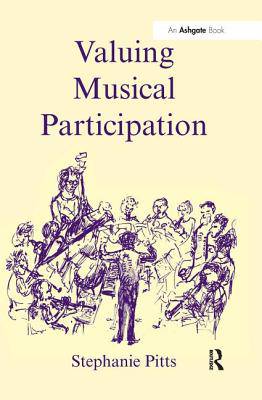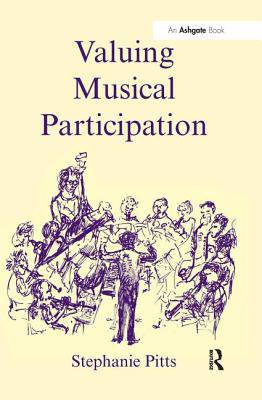
Door een staking bij bpost kan je online bestelling op dit moment iets langer onderweg zijn dan voorzien. Dringend iets nodig? Onze winkels ontvangen jou met open armen!
- Afhalen na 1 uur in een winkel met voorraad
- Gratis thuislevering in België vanaf € 30
- Ruim aanbod met 7 miljoen producten
Door een staking bij bpost kan je online bestelling op dit moment iets langer onderweg zijn dan voorzien. Dringend iets nodig? Onze winkels ontvangen jou met open armen!
- Afhalen na 1 uur in een winkel met voorraad
- Gratis thuislevering in België vanaf € 30
- Ruim aanbod met 7 miljoen producten
Zoeken
Omschrijving
Increasingly, it is becoming evident that those involved in socio-musical studies must focus their investigative lens on musical practice and articulation of the self, on music and community involvement and on music as a social medium for social relationships. What motivates people to be involved in musical performance, and how do they articulate these needs and drives? What do performers gain from their involvement in musical activities? How do audience members perceive their relationship to the performer, the music and the event? These questions and many more are addressed here with the benefit of detailed empirical work, including case studies of a chamber music festival and a contemporary music summer school. Pitts investigates the value of musical participation for performers and audience members in a range of contexts, using a multi-disciplinary approach to place new empirical data in the framework of existing theory and literature. Themes examined include: the shared musical experience; the social structures of performing societies; how people identify with music; the values implicit in musical preferences; the social responsibilities of the performer; the audience view of concerts and festivals; the social power of music and educational implications and responsibilities. Pitts draws upon literature from musicology, sociology and psychology of music, ethnomusicology, music education and community music to demonstrate the diversity of enquiry about musical behaviours. The conclusions of the book are based upon empirical evidence gleaned through case studies, with the data integrated thematically throughout, to enable a greater depth of discussion than individual studies usually permit.
Specificaties
Betrokkenen
- Auteur(s):
- Uitgeverij:
Inhoud
- Aantal bladzijden:
- 168
- Taal:
- Engels
Eigenschappen
- Productcode (EAN):
- 9780754650959
- Verschijningsdatum:
- 16/05/2005
- Uitvoering:
- Hardcover
- Formaat:
- Genaaid
- Afmetingen:
- 156 mm x 233 mm
- Gewicht:
- 359 g

Alleen bij Standaard Boekhandel
+ 364 punten op je klantenkaart van Standaard Boekhandel
Beoordelingen
We publiceren alleen reviews die voldoen aan de voorwaarden voor reviews. Bekijk onze voorwaarden voor reviews.











